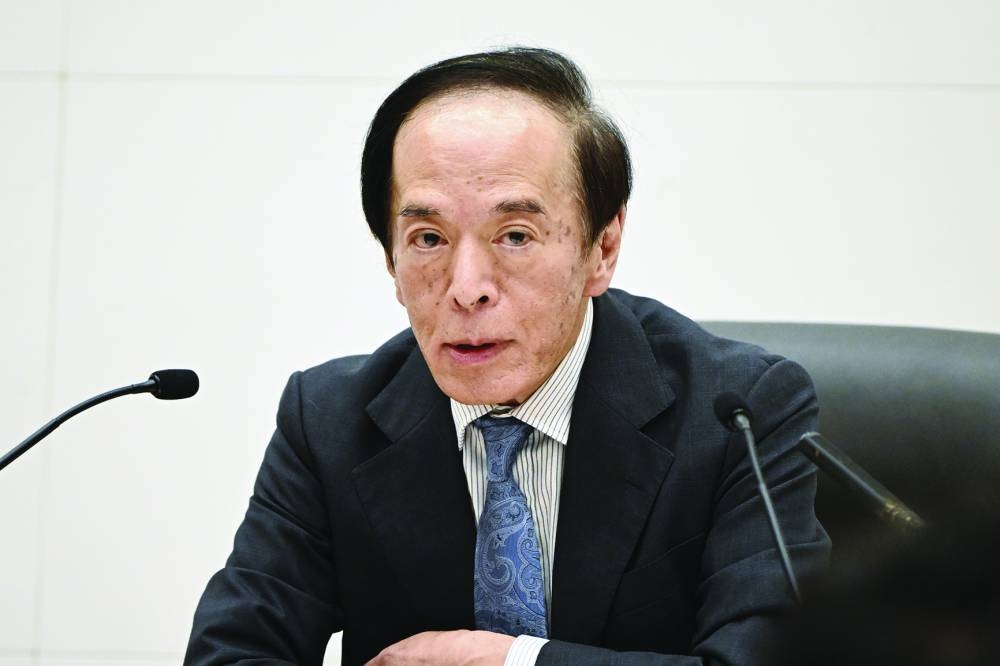Bank of Japan (BoJ) Governor Kazuo Ueda kept rate hikes in play this year by turning a potentially messy parliamentary hearing into a relatively straightforward reiteration of policy in his first public remarks following a global market rout.
“If we are able to confirm a rising certainty that the economy and prices will stay in line with forecasts, there’s no change to our stance that we’ll continue to adjust the degree of easing,” Ueda said in response to questions in parliament on Friday.
When asked about the market ructions that occurred earlier this month, Ueda played down the significance of the BoJ’s July rate hike in the turmoil by citing concerns over the state of the US economy as the key catalyst, adding that “overdone” worries have since eased.
At the same time, he signalled that he doesn’t plan to rush ahead with the next rate hike, saying the BoJ needs to carefully watch the impact of unstable financial markets on the inflation outlook for the time being.
The governor’s remarks suggest that the sharp market tumbles in early August won’t deter authorities from considering more rate increases in the future as the central bank unwinds years of ultra-easy policy, even if the next move isn’t imminent.
Japan’s Topix share index switched from gains to losses as the yen strengthened, but ended the day up as it became clear the local currency wasn’t on a renewed tear.
Ueda is sticking to his view that the central bank will hike rates if the economy meets expectations, rather than needing economic data to exceed forecasts to trigger policy moves, said David Forrester, a senior strategist at Credit Agricole CIB in Singapore.
“The fact that Ueda is sticking to this rhetoric despite recent financial market turbulence is positive for the yen,” Forrester said.
While the BoJ is widely expected to stand pat on policy when the board meets in September partly to avoid any market ripples when Japan’s ruling party chooses a new leader, many surveyed economists expect the bank to increase borrowing costs again by December.
Ueda’s comments on watching markets for now echoed remarks delivered by his deputy, Shinichi Uchida, in early August when the central bank was looking to reassure jittery investors. Still, the governor stopped short of repeating Uchida’s pledge not to raise rates when markets are unstable.
Instead he pledged to carefully communicate the bank’s thinking to ensure market participants aren’t taken by surprise.
“We will watch financial markets with an extremely high sense of urgency for the time being,” he said.
“For those market participants looking for some comments as dovish as Uchida’s, his remarks were a little negative, but the impact was limited,” said Jumpei Tanaka, a strategist at Pictet Asset Management Japan Ltd.
The BoJ has come under criticism from observers who said the July 31 hike and Ueda’s post-decision pledge to continue raising rates if conditions allow were key factors that triggered a massive selloff in global financial markets days later.
The concerns raised prompted lawmakers in Japan to call the unusual hearing at a time when parliament isn’t in session. Still, the question-and-answer session turned into an extended reiteration of policy rather than a deep grilling of the governor as the recent market recovery assuaged worries about the BoJ policy path.
“It’s too much to say that the BoJ had nothing to do with the recent market rout since it played a major part for sure,” said Atsushi Takeda, chief economist at Itochu Research Institute. “But to keep rate hikes as a future option, Ueda probably had to blame it on rapidly heightened concerns over a US economic slowdown.”
At the July meeting, the BoJ raised its benchmark rate to 0.25% from a range of 0% to 0.1%, its second increase this year.
Ueda’s hearing in parliament comes ahead of a keynote speech by Federal Reserve Chair Jerome Powell later in the day. Expectations of when and by how much the Fed will cut interest rates is a key factor feeding into recent market turbulence.
“These comments will leave the yen to the mercy of Powell and what US data signals in the weeks ahead,” said Charu Chanana, head of currency strategy at Saxo Markets.
Business
Ueda keeps rate hikes in play, talks down BoJ’s part in meltdown
BoJ chief keeps rate hikes in play this year

Kazuo Ueda, governor of the Bank of Japan.
